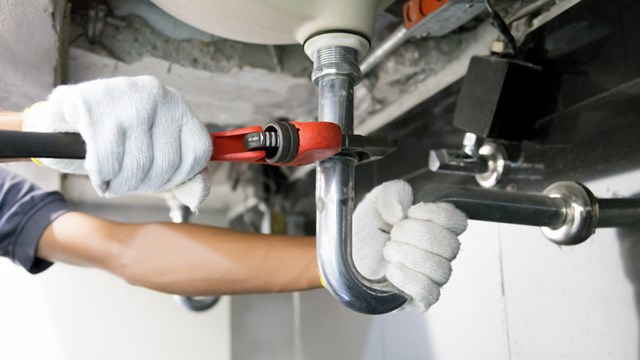It’s the same dilemma that single-family households across the United States are facing: How much money can we afford to pay for the services we want? And should we stretch ourselves thin, taking more out of our bank accounts to pay for private schools and that desperately needed vacation? Or should we cut back on restaurants and renovations to put more into savings?
The same goes for condo and co-op buildings.
As the federal legislative fiasco over the debt ceiling this past summer demonstrated, it's sometimes very difficult to balance a community's (or a whole country's) need for revenue with its equal need for services.
In the case of an HOA, cutting costs is one sure way to bring a runaway budget to heel, but cost-cutting almost inevitably comes with reductions in services and amenities that many residents view as their basic rights as homeowners and association members.
When boards and managers are faced with tough decisions about raising revenue and possibly cutting costs, communication, transparency, and cooperation with residents are more important than ever.
First Things First
HOA administrators can clearly and realistically illustrate their communities' financial situation for residents, while making tough decisions about raising fees and possibly paring back amenities—but it’s a tough balance, and one that can upset everyone from the homeowners to the board members to the HOA administrators.
The first step is to figure out the basics: Does your building need a standard maintenance increase, a special assessment, or a reduction of services?
Maintenance fees are initially determined when the board looks at the total operating budget, figuring out how much reserve they think they need and dividing the total figure by the share of ownerships. Some buildings have higher maintenance fees because they include more amenities, such as a doorman, pool, or gym.
And when the pool needs rehabbing, the roof springs a leak, the electricity bill rises or the common areas require new carpeting, then you can either ignore the problem (which is hardly recommended), raise maintenance fees, or have a one-time special assessment, says Gary van der Laan, director of management development at Leland Management Inc. in Orlando.
“It is important to watch the financial status of the association on a monthly basis,” van der Laan says. “A good rule of thumb is that the community should have three months of operating cash on hand at any point. If levels begin to drop below this, it is time to reduce expenses or consider an increase.”
Other Options
Those are two choices, but there are a few others associations may consider as well. In lieu of a general maintenance increase or special assessment, Florida homeowners associations also have the ability to generate extra money by charging a late fee on assessments, up to a $100 fee per person when transferring for sales and leases, and rental feels for special use of common areas, such as for parties, meetings, and other functions.
Regardless of the way the money is generated however, with proper budgeting there should never be a reason to increase the fees more than once per year, van der Laan says.
There are also rules in place to make sure the maintenance fees and other charges don’t increase too often or too high. The association also needs to have everything in writing ahead of time, explaining the percentage that the fees can be raised annually, and for what reasons homeowners can be charged.
And while the state of Florida does not impose a cap on how much is too much for a single special assessment or fee increase, homeowners associations need to be mindful of how much their residents can actually afford with regards to yearly assessment increases. “Other than such an unforeseeable need, regular annual increases would not typically be greater than 5 percent,” van der Laan says.
But technically, a board is able to increase annual fees by 15 percent per year without majority approval by the residents, says Sue Carpenter, CEO of Community Management Professionals Inc. in Orlando.
No Surprises
If homeowners read their governing documents and attend their association's yearly budgeting meeting, then none of the increases should come as a surprise, van der Laan says.
“When the budget process begins, the board should look at the actual expenses through that point in the budget year, as well as projections to the end of the budget year,” he says. “All contracts in place should be reviewed for any type of built-in increase, and all service providers and utilities should be contacted to find out about any expected increase for the next year.”
However, if expenses stay relatively stable from year to year, there doesn’t necessarily have to be an automatic annual increase in assessments, says Ken Arnold, CEO and president of the Miami-based Association Financial Services, a financial services provider specializing in lending and collections for condo and homeowners associations.
For example, if your building is currently playing $100 per week for landscaping, and the next year, it still will cost $100 per week, then there would be no immediate need to tack on any extra costs to the homeowners. Of course, if the price of the landscaping goes up, a board could either decide to increase maintenance fees, or even turn the flowerbed into a concrete area and get rid of the cost of landscaping altogether, Arnold says.
Unlike maintenance increases, special assessments aren't necessarily predictable. There’s no cap on how much they can be, and depending on the reason, they may cost a relative small fortune for homeowners. A special assessment can only be requested if there’s a sudden infrastructure issue, such as a broken roof, a faulty balcony or window that may become dangerous if not replaced.
And according to the legal pros, those dangers go beyond the obvious ones to life and limb. If an owner is injured as a direct result of deteriorated property, both the association and the individual members of the board could be potentially liable. So even if it seems like a good idea to hold off on repairs or maintenance projects in the name of thriftiness during a tough economic patch, doing so could come back to bite board members where it hurts.
According to one Miami-based attorney, Florida state law requires that boards manage the fees and assessments that essentially keep their building running smoothly from day to day, and which are used in case of emergencies. But since the specific cost of fees and special assessments isn’t spelled out, it’s up to the board to decide how fiscally responsible they should be. One of the tangible benefits of keeping the maintenance low or steady year after year—aside from keeping residents happy—are resales.
“A lot of times, people make decisions on which condo to buy based on the maintenance fee,” Arnold says. “All financial factors go into their final decision.”
On the other hand, residents also want—and require—a building that functions well and is safe. People want their place maintained, and sometimes, you have to spend money to maintain it. A smart homebuyer will look at what the reserves are, and if it’s not adequately funded, then the money will have to eventually come via a special assessment.”
The Last Resort
The final option would be to reduce amenities if the board wants to avoid raising the assessments or creating a special assessment. But if a resident is promised a certain amenity when buying the condo or coop, they board will have a hard time legally and practically doing away with the perk.
Carpenter suggests that if a board is strapped for money, they could get rid of relatively smaller amenities, such as a monthly social or a Christmas party, rather than doing away with something that’s been promised in writing to the resident, such as a pool or a tennis court.
That way, they’d be able to scale back without upsetting the residents and going back on what was originally promised when the apartment was sold.
Whether the board decides to raise assessments, add a special assessment or reduce amenities in a cost-cutting measure, there are good and bad ways to go about explaining to residents the plan.
To avoid shocking unit owners with an assessment or fee increase out of the blue, most legal and management experts advise boards to keep their residents informed throughout the year of the causes of maintenance increases. The board can do this through newsletters, a website, a personal letter from the president and via financial reports.
Most increases are the result of capital repairs, delinquent unit owners, foreclosure and price increases for insurance—and if this is explained clearly and honestly to an association's unit owners, there will likely be less push-back when the time comes to impose the increase or assessment. After reviewing the contents of the letters, invite the unit owners to e-mail the board with further questions or with clarifications of any of the points they may not completely understand. Better yet, invite them to serve on the board itself, or on the budget or financial committee.
“There needs to be information about why this is necessary, versus some other option,” Carpenter says. “Emotions have to be kept out of it. If the board can’t handle it, perhaps it’s best to have their manager do it, or their attorney attend and present it for them—someone with authority who the membership will respect.”
Danielle Braff is a freelance writer and a frequent contributor to The South Florida Cooperator.







Leave a Comment